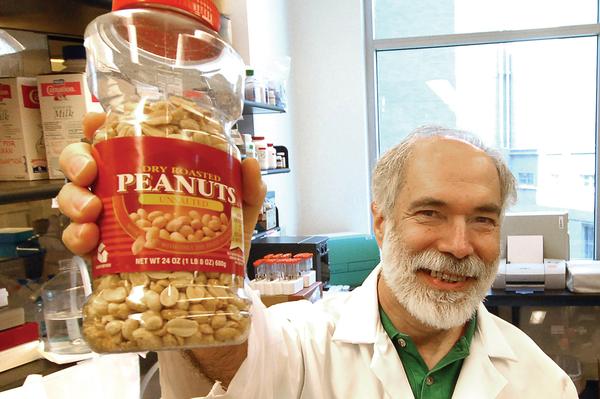A University of Cincinnati doctor has lined up $2 million to continue studying how dangerous allergies might be suppressed with injections of an antibody. The innovative treatment could help millions of people who could have life-threatening immune system reactions to everything from eating peanuts to bee stings.

The treatment, which would involve getting a shot every two to four weeks of a monoclonal antibody developed in a laboratory, would have commercial applications that could prove lucrative, said Dr. Fred Finkelman, a professor of medicine and pediatrics at the UC College of Medicine.
There’s no cure for allergies, but Finkelman hopes to develop an antibody that could deactivate cells that trigger allergic reactions.
The research could lead to a treatment for many food allergies, including those that result from the top eight culprits: peanuts, tree nuts, milk, eggs, fish, shellfish, wheat and soy.
The antibody treatment already “works fine in mice,” Finkelman said. “So, if you are an allergic mouse, boy do we have a treatment for you. Unfortunately, very few mice have health insurance, and the demand for this in mice is not great.”






































